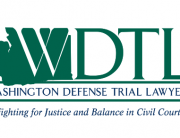In a narrowly divided opinion (5-4), the Washington Supreme Court recently held that an insurer’s employees adjusters are not subject to personal liability for bad faith or CPA claims. A link to the decision can be found here Keodalah v. Allstate Insurance Company
RAW 48.01.030 does not create an implied cause of action for insurance bad faith. In analyzing this issue, the Supreme Court looked to the “entire context of the statute in which the provision is found, as well as related provisions, amendments to the provision, and the statutory scheme as a whole” The Court reasoned that the interest addressed in RCW 48.01.030 is expressly stated to be the “public interest,” and the statute indicates that its purpose is to protect the “integrity of insurance.” Thus, the Court concluded that it cannot be said that the statute was enacted for the particular benefit of insureds; and therefore the first Bennett factor does not support finding an implied cause of action for a violation of RCW 48.01.030.
Further, after analyzing the relevant statutory and historical contexts, the Court noted that RCW 48.01.030 may properly be read as a broad statement of public policy supporting specific provisions of the insurance code, not as an additional and separate statutory cause of action. The Court noted that if they were to read the statute to imply a cause of action by the statute’s plain language, such implied cause of action would apply against insureds as well. Thus, the Court concluded the provision of such a broad inferred cause of action subjecting every person and entity listed in RCW 48.01.030 to liability would not be consistent with the legislature’s purpose in enacting the statute.
Smith also did not owe Keodalah a duty under WAC 284-30-330(2),(4), (6), (7), (8) and (13). The Court held this regulation defines only unfair acts or practices of the insurer. Thus, because Smith was not the insurer, Keodalah cannot seek to enforce the regulation against Smith.
Further, while Smith contended that a breach of the good faith duty that RCW 48.01.030 imposes on employee adjusters subjects them to CPA liability, the Court held that such claims fail because, just as the Court has limited bad faith tort claims
to the context of the insurer-insured relationship, so has it limited CPA claims based on breach of the statutory duty of good faith. The Court cited previous opinions in which it has been well established that “only an insured may bring a CPA claim for an insurer’s breach of its statutory duty of good faith.” Thus, Keodalah, as the insured, can sue insurer Allstate, he cannot also sue Smith, the insurer’s employee.
The overturned Court of Appeals decision reflects a national trend of joining individuals as defendants in lawsuits for bad faith against insurers in order to prevent insurers from removing cases to federal courts by finding a nondiverse defendant such as the insurer’s local adjuster, agent or attorney. The lengthy dissent agreed with the majority that RCW 48.01.030 does not imply a statutory cause of action for insurance bad faith. However, the dissent would have reinstated Keodalah’s claims for per se violations of the CPA, and supported his cause of action for common law insurance bad faith against Smith not addressed in the majority decision.
~ Lori O’Tool & Luisa Hernandez





